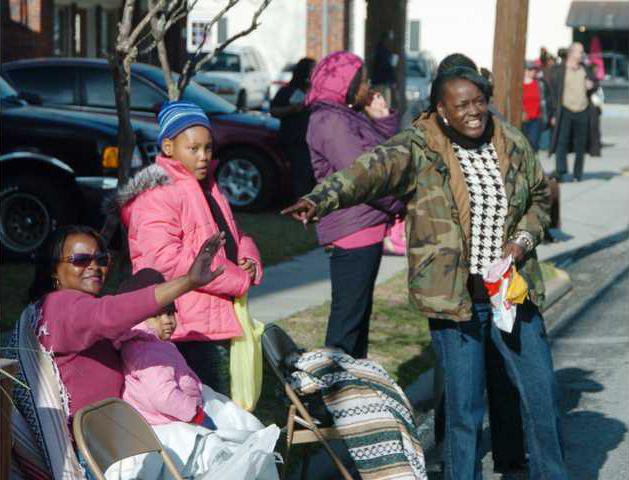The dream is still alive, Chester Dunham proclaimed Monday morning, and now it rests in the hands of the people.
Dunham, the keynote speaker for the annual Dr. Martin Luther King Jr. Day observance breakfast, asked the participants not to let the dream die and to carry it forward with them.
“I can’t begin to describe what an inspiring and historic moment this is,” he said on the precipice of the presidential inauguration of Barack Obama. “The dream is in your hands. It is a dream of peace based on justice.”
Dunham remarked on a statement made by the Rev. Benjamin Mays to Dr. King as Mays conferred an honorary degree upon him.
“You are wiser at 28 than most men are at 60,” Mays told the then-young preacher.
Dunham also recounted a story Mays told of a group who went to King’s father’s house to deter him from returning to Alabama.
“I would stand 10 years in jail than turn my back on the people who entrusted me with leadership,” Dunham recalled as King’s response.
Dunham, host of The Dunham Report on Savannah’s WSOK-AM and a longtime officer of International Longshoremen’s Association Local 1414, also quoted former British prime minister Benjamin Disraeli, who said there will be no international peace without international justice.
“It is a dream of peace based on justice, a justice based on love,” he said. “Peace is, in the positive sense, based on justice. Peace without justice is quiet brutality. Love without justice is weak sentimentality.”
Dunham called again on the words of Dr. Mays, a noted civil rights leader himself, in describing how to pass on carrying on Dr. King’s dream.
“We must say to our children, be the best at whatever you choose. Dr. Mays told his students, ‘Do it so well that no one alive could do it as well,’” Dunham said. “If you become a teacher, teach so well that even if your students don’t like you, 25 years later they will say, ‘There was a good teacher.’ If you are going to be a preacher, then be ready to lead a revival in hell. Be the best at whatever you are.
“If you’re a street sweeper, then sweep streets like Marian Anderson sang ‘Ave Maria’ or like Michelangelo chiseled marble or like Beethoven composed music or like Langston Hughes composed poetry.”
Dunham also explained how non-violence was at the heart of Dr. King’s push.
“Some people never understood the meaning of non-violence,” he said. “But non-violence really begins at home. It ought to start in the living room, move to the classroom and then to the boardroom.
“Nonviolence will not keep you from being lied on, but it will help you from being a liar. Nonviolence will not keep you from being hated, but it will keep you from being a hater.”
While violence has given the world such people as Hitler, nonviolence has led to Mahatma Gandhi, “Frederick Douglass, Harriet Tubman, Sojourner Truth, A. Philip Randolph and now, President-Elect Barack Obama,” Dunham said.
On his tomb in Atlanta, Dunham said, are the dates of Dr. King’s birth year and the year he was assassinated. They are separated by a dash.
“That little dash between two dates is all he had,” Dunham said. “And it’s all we have. You can lose it or you can use it. I didn’t pick it. I didn’t choose it. It’s up to me to use it.”








